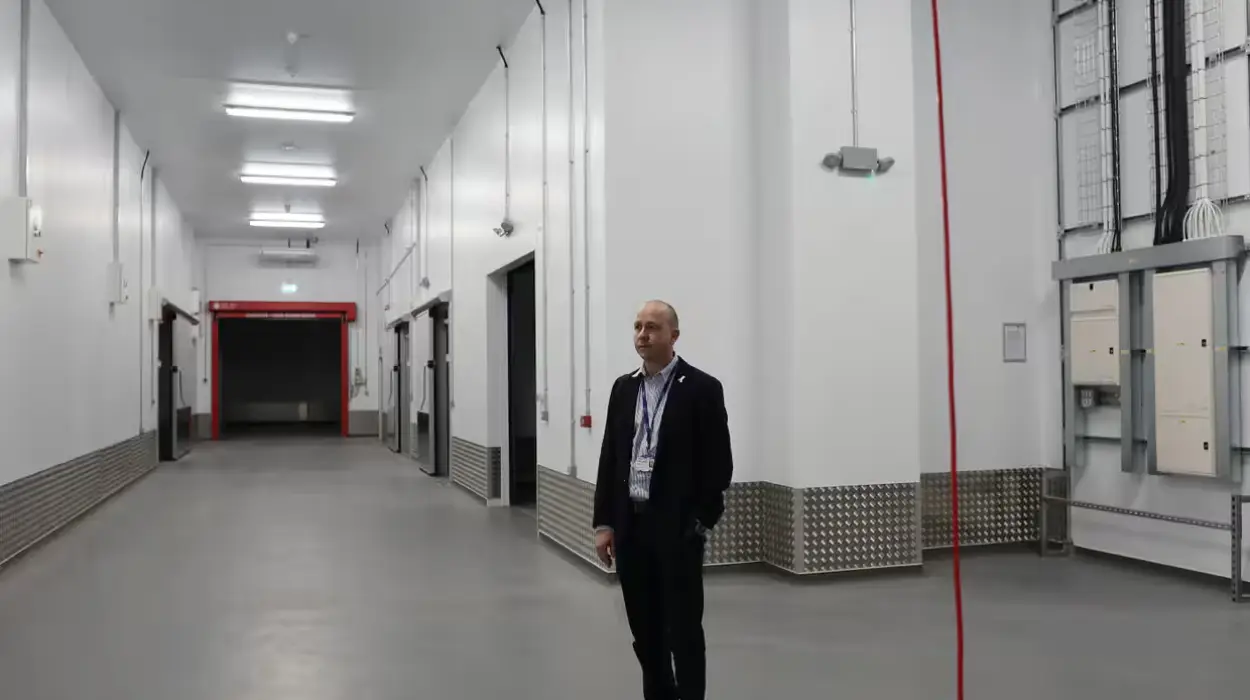UK (Parliament Politics Magazine) – Portsmouth’s £25m Brexit food inspection hub may be dismantled after an EU deal scrapped checks, leaving the site unused and the council facing a £6m shortfall.
As reported by The Guardian, the future of Portsmouth’s £25m Brexit site is uncertain. The port chief says it may be demolished due to scrapped food import checks under the EU deal.
What did Mike Sellers say about the unused Brexit site?
Mike Sellers had already raised concerns last year, saying most of the facility would remain idle. The rollback of inspection requirements turned the £25m site into what many called a “white elephant.”
He said,
“Anything that would smooth the movement of trade as well as passengers around the port is welcomed, although the devil is in the detail,”
Adding,
“Based on Monday’s announcement and the information that has been provided, we believe that then negates the need for the border control post,” he added, leaving it with two costly choices.”
Mr Sellers explained that Portsmouth City Council, the port’s owner, faces two options.
He said they might
“repurpose the facility and see whether we can get another use out of it, or demolish it to give us some more operational land.”
He added,
“We have been left with this huge white elephant. We are not blessed with a lot of operational lands, and this took up acres of land and the opportunity cost around that. We were unable to handle some of the potential new business that could have come through Portsmouth.”
How did funding shortfalls impact Portsmouth’s Brexit border control post?
Portsmouth’s 8,000-square-metre border facility, featuring 14 lorry bays, was constructed to facilitate checks on low- and high-risk products within sealed quarantine areas to avoid contamination.
Since its opening in April last year, the facility has seen minimal use. This is due to the previous Conservative government’s revisions to the post-Brexit imports system, known as the border target operating model, which lowered the inspection requirements considerably.
According to Sellers, the facility at Portsmouth has carried out only about three checks per day since opening, far below the 80 checks it was built to accommodate.
The facility and other posts have struggled to generate the projected funds from levies on importers related to product checks.
How much government funding did Portsmouth Port receive?
Portsmouth and 40 other ports received £200m from the government for their new control posts. The port infrastructure fund was oversubscribed, forcing the ports to finance an estimated £120m of the remaining building costs.
The port, managed by Sellers, gained £17.1m from the fund after requesting £32m, which led the council to take out a loan to fill the funding gap.
What did Richard Ballantyne say about the costs of redundant border infrastructure?
The British Ports Association has praised the recent UK-EU deal but reiterated the need for financial compensation for ports forced to invest in redundant border infrastructure.
Richard Ballantyne, the industry body’s CEO, said, “The sector is out of pocket by £120m in infrastructure costs and ongoing costs.”
He added,
“It is very expensive to repurpose and modify the border facilities, and in some cases, it will be more cost-effective to demolish them. We are left in a precarious situation of not knowing what to do, but ultimately the cost will need to be passed on as port operations can’t continue taking a hit.”
What are the financial challenges facing Portsmouth’s border facility?
The BPA estimated that maintaining a large BCP like Portsmouth’s 15-bay facility requires about £200,000 yearly to cover energy bills, cleaning, insurance, and business rates. The running costs for smaller border control posts are projected at around £100,000 per year.
Portsmouth had endorsed the BPA’s demand for compensation, citing the local council faces a shortfall of approximately £6 million.
UK-EU deal main points
Fishing rights
- EU boats can continue fishing in UK waters until 2038 (extended from 2026).
- The EU’s fishing quota in UK waters remains reduced by 25%.
- A £360 million ($481m) fund will support UK coastal communities.
Trade & agriculture
- Simplified border checks for food, plants, and animal products (SPS goods).
- Expected to lower food prices and boost trade.
Security cooperation
- Intelligence sharing, including facial recognition data.
- Britons can use e-gates at more EU airports to reduce queues.
Carbon taxes
- UK and EU carbon markets will link to avoid double taxation.
- Could add £9 billion ($12bn) to the UK economy by 2040.
Youth mobility
- Potential scheme for under-30s to live/work in each other’s territories.

